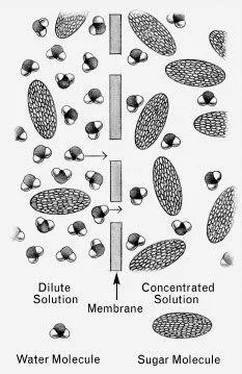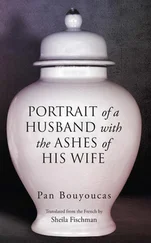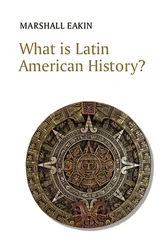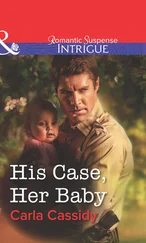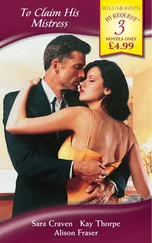Marlene Parrish - What Einstein Told His Cook 2
Здесь есть возможность читать онлайн «Marlene Parrish - What Einstein Told His Cook 2» весь текст электронной книги совершенно бесплатно (целиком полную версию без сокращений). В некоторых случаях можно слушать аудио, скачать через торрент в формате fb2 и присутствует краткое содержание. Год выпуска: 0101, Издательство: W. W. Norton & Company, Жанр: Кулинария, на английском языке. Описание произведения, (предисловие) а так же отзывы посетителей доступны на портале библиотеки ЛибКат.
- Название:What Einstein Told His Cook 2
- Автор:
- Издательство:W. W. Norton & Company
- Жанр:
- Год:0101
- ISBN:нет данных
- Рейтинг книги:4 / 5. Голосов: 1
-
Избранное:Добавить в избранное
- Отзывы:
-
Ваша оценка:
- 80
- 1
- 2
- 3
- 4
- 5
What Einstein Told His Cook 2: краткое содержание, описание и аннотация
Предлагаем к чтению аннотацию, описание, краткое содержание или предисловие (зависит от того, что написал сам автор книги «What Einstein Told His Cook 2»). Если вы не нашли необходимую информацию о книге — напишите в комментариях, мы постараемся отыскать её.
What Einstein Told His Cook 2 — читать онлайн бесплатно полную книгу (весь текст) целиком
Ниже представлен текст книги, разбитый по страницам. Система сохранения места последней прочитанной страницы, позволяет с удобством читать онлайн бесплатно книгу «What Einstein Told His Cook 2», без необходимости каждый раз заново искать на чём Вы остановились. Поставьте закладку, и сможете в любой момент перейти на страницу, на которой закончили чтение.
Интервал:
Закладка:
I believe that words, which of course are only symbols for concepts, are often more easily understood if their origins are known. For that reason I have included the etymologies (and occasionally the pronunciations) of some of the scientific terms that might otherwise intimidate the uninitiated.
The current volume is somewhat deeper and richer in science than the previous one, in recognition of the growing appetite for science among foodies, both avocational and professional. I have set aside the more technical details, however, in sections that I call “Sidebar Science,” which each reader may choose to read or skip, depending on the depth of his or her scientific interests. Skipping them will not interrupt the continuity of the text, especially since the Q&A units are designed to be read independently, wherever one may chance to open the book.
If, as Miguel de Cervantes wrote in Don Quijote de la Mancha , hunger is the best sauce in the world, then humor is the best digestif . In my opinion, there are few subjects or circumstances that cannot be made more palatable and digestible by being seasoned with humor. As food and cooking can be fun, so can—and should—science. In this vein I have not restrained myself (very much) from injecting a wry observation wherever I deemed it appropriate. At the risk of disaffecting pun haters, I have also scattered “Foodie’s Fictionary” definitions throughout the book like truffles (or nettles?) in a forest.
After all, one cannot enjoy food without at times putting one’s tongue in one’s cheek.
NOTE: This book is all-natural and has not been tested on animals .
ACKNOWLEDGMENTS
TO PARAPHRASE JOHN DONNE, no writer is an island; he has editors.
It may not be universally realized that every word in a book or newspaper has been scrutinized and checked by at least one, and often as many as a dozen, pairs of eyes, whose invisible fingerprints (to muddle a couple of metaphors) are all over it.
While writing this book and its predecessor, I have benefited greatly from the wisdom, advice, and good judgment of W. W. Norton’s senior editor Maria Guarnaschelli, the personification of “tough love,” who acted not as a mere after-the-fact editor, but as a fond collaborator from the project’s inception to its completion. Without her guiding hand in the tasks of crafting and re-crafting its scope and organization, this book would not have been possible.
My gratitude has been earned also by Maria’s sharp and most capable assistant, Erik Johnson, for coordinating the many elements that go into the publication of a book, including nagging the author about deadlines.
Among the skillful professionals at W. W. Norton who turned my manuscript into a book, led by president Drake McFeely, editor-in-chief Star Lawrence, and managing editor Nancy Palmquist, are designer Barbara Bachman, jacket artist John Fulbrook III, art director Georgia Liebman, publishing director Jeannie Luciano, director of manufacturing Andy Marasia, production manager Anna Oler, sales manager Bill Rusin, and project editor Susan Sanfrey. The illustrations are the products of talented freelance artists Alan Witschonke and Rodney Duran. I thank them all.
My special appreciation goes to ultrameticulous copy editor Katya Rice, whose sharp eye and linguistic expertise (who else would write me an entire paragraph to justify a changed comma?) kept the text either immaculately syntactic or syntactically immaculate, and who would incisively have pointed out the difference.
I remain grateful to my literary agent, Ethan Ellenberg, who long ago encouraged me to write the book that became the first in my “Einstein Series.” The volume you are now holding is the fourth in what I had hoped might some day become a trilogy.
Until now, I have not availed myself of an opportunity to thank in print the people who over the years catalyzed my metamorphosis from chemist to writer.
For launching me on the very first step of my journalistic journey, I am grateful to Nancy Brown, editor of The University Times, the University of Pittsburgh’s faculty and staff newspaper, who asked me to write a column when I didn’t know I was capable of writing a column.
I am indebted to Mark Nordenberg, former dean of the School of Law and currently chancellor of the University of Pittsburgh, for perceiving enough of a writer in me to ask that I write profiles of distinguished alumni for the Law School’s alumni magazine.
And I shall always remember the late chancellor of the University of Pittsburgh Wesley Posvar, for recognizing the morale-building value of humor in a university, and for encouraging my satirical monologues at the university’s annual administrative conferences.
For the past seven-plus years, Washington Post food editors Nancy McKeown, Jeanne McManus, and Judy Havermann have granted me the privilege of writing for that august newspaper, the bright and curious readers of which have provided the grist for this book. I could never have imagined such an outcome while sitting in a one-semester journalism class at Fort Hamilton High School under the tutelage of the incomparable A. H. Lass.
A special hug goes to Paula Wolfert, who believed in me as a fledgling food writer, who encouraged me, and who gave me valuable advice.
And of course, my wife and coauthor, Marlene Parrish, deserves my admiration not only for the work she did on the recipes but also for enduring the deprivation of my company during my many months of slaving away at the computer.
What Einstein Told His Cook 2
Chapter One
Something to Drink?
WHAT ARE THE FIRST TWO things a server says to you as soon as you’ve been seated in a restaurant? (1) “Hello, my name is Bruce/Aimee and I’ll be your server.” (2) “May I bring you something to drink?”
Thus far, I have been successful in repressing the replies: (1) “Glad to meet you. My name is Bob and I’ll be your customer.” Or (2) “Thanks, but I came here primarily to eat.”
I concede that it would be useful to know the server’s name if it were permissible to summon him/her in time of need by yelling across the room, “Hey, Bruce/Aimee, over here!” But that would be boorish.
(When I lived in Puerto Rico, I found that it is perfectly acceptable to summon a server with a brisk “Sssst!,” which carries across the room but isn’t unduly disturbing to other patrons. It is quite effective and not considered the least bit vulgar. I highly recommend that we obtain Miss Manners’ permission to adopt that practice here in the States.)
I have often suspected that many people respond to the “Something to drink?” question by naming whatever liquid first comes to mind, from an apéritif or cocktail to iced tea and the ubiquitous Diet Coke, simply because they feel it’s expected of them. Or maybe they’re afraid to answer “Just water, please” because they dread the question that often follows, “Bottled or tap?,” which demands to be answered in a way that wards off the label “cheapskate,” like a priest brandishing a crucifix against a vampire.
When thinking about drinking, we must sidestep the all-too-common meaning of “a drink” in our society. “Let’s have a drink” is rarely an invitation to share a glass of carrot juice; it strongly implies the consumption of an alcoholic beverage. And a person who is said to “drink too much” certainly isn’t hooked on milkshakes. Drinking liquor has even captured its own verb, imbibe , which in reality has several other contexts that you’ll virtually never hear.
Look. You don’t need me to tell you the difference between eating and drinking, between solid food and liquid beverage. But let’s lay it all out on the table for detached and objective scrutiny, as if we were aliens just off the saucer from a planet where all food is gaseous and consumed by inhalation.
Читать дальшеИнтервал:
Закладка:
Похожие книги на «What Einstein Told His Cook 2»
Представляем Вашему вниманию похожие книги на «What Einstein Told His Cook 2» списком для выбора. Мы отобрали схожую по названию и смыслу литературу в надежде предоставить читателям больше вариантов отыскать новые, интересные, ещё непрочитанные произведения.
Обсуждение, отзывы о книге «What Einstein Told His Cook 2» и просто собственные мнения читателей. Оставьте ваши комментарии, напишите, что Вы думаете о произведении, его смысле или главных героях. Укажите что конкретно понравилось, а что нет, и почему Вы так считаете.
